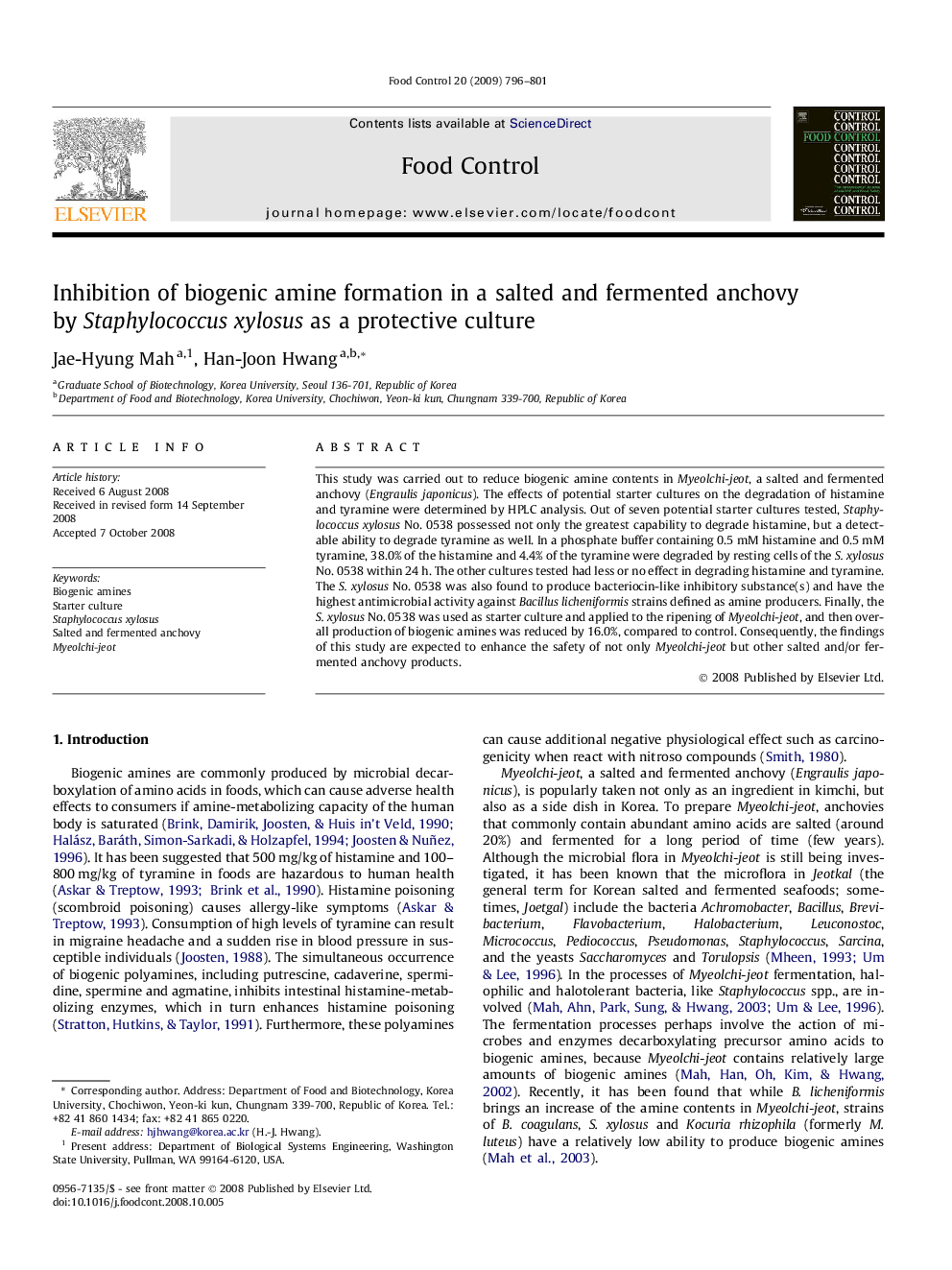| Article ID | Journal | Published Year | Pages | File Type |
|---|---|---|---|---|
| 4560154 | Food Control | 2009 | 6 Pages |
This study was carried out to reduce biogenic amine contents in Myeolchi-jeot, a salted and fermented anchovy (Engraulis japonicus). The effects of potential starter cultures on the degradation of histamine and tyramine were determined by HPLC analysis. Out of seven potential starter cultures tested, Staphylococcus xylosus No. 0538 possessed not only the greatest capability to degrade histamine, but a detectable ability to degrade tyramine as well. In a phosphate buffer containing 0.5 mM histamine and 0.5 mM tyramine, 38.0% of the histamine and 4.4% of the tyramine were degraded by resting cells of the S. xylosus No. 0538 within 24 h. The other cultures tested had less or no effect in degrading histamine and tyramine. The S. xylosus No. 0538 was also found to produce bacteriocin-like inhibitory substance(s) and have the highest antimicrobial activity against Bacillus licheniformis strains defined as amine producers. Finally, the S. xylosus No. 0538 was used as starter culture and applied to the ripening of Myeolchi-jeot, and then overall production of biogenic amines was reduced by 16.0%, compared to control. Consequently, the findings of this study are expected to enhance the safety of not only Myeolchi-jeot but other salted and/or fermented anchovy products.
